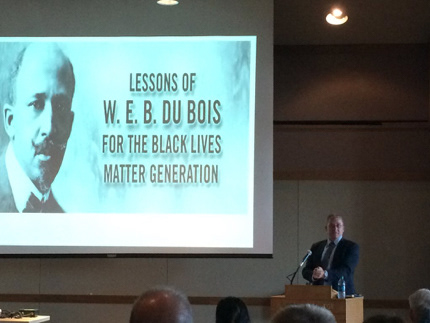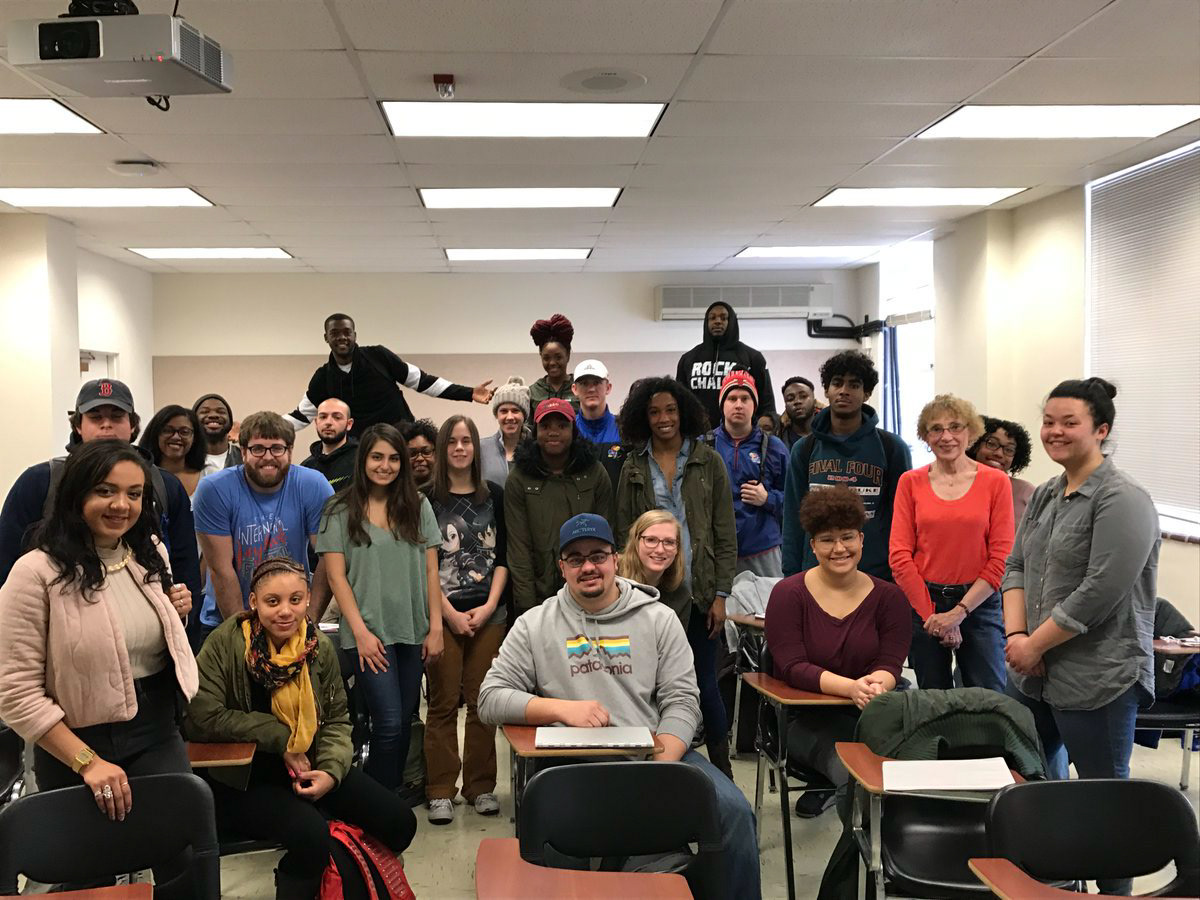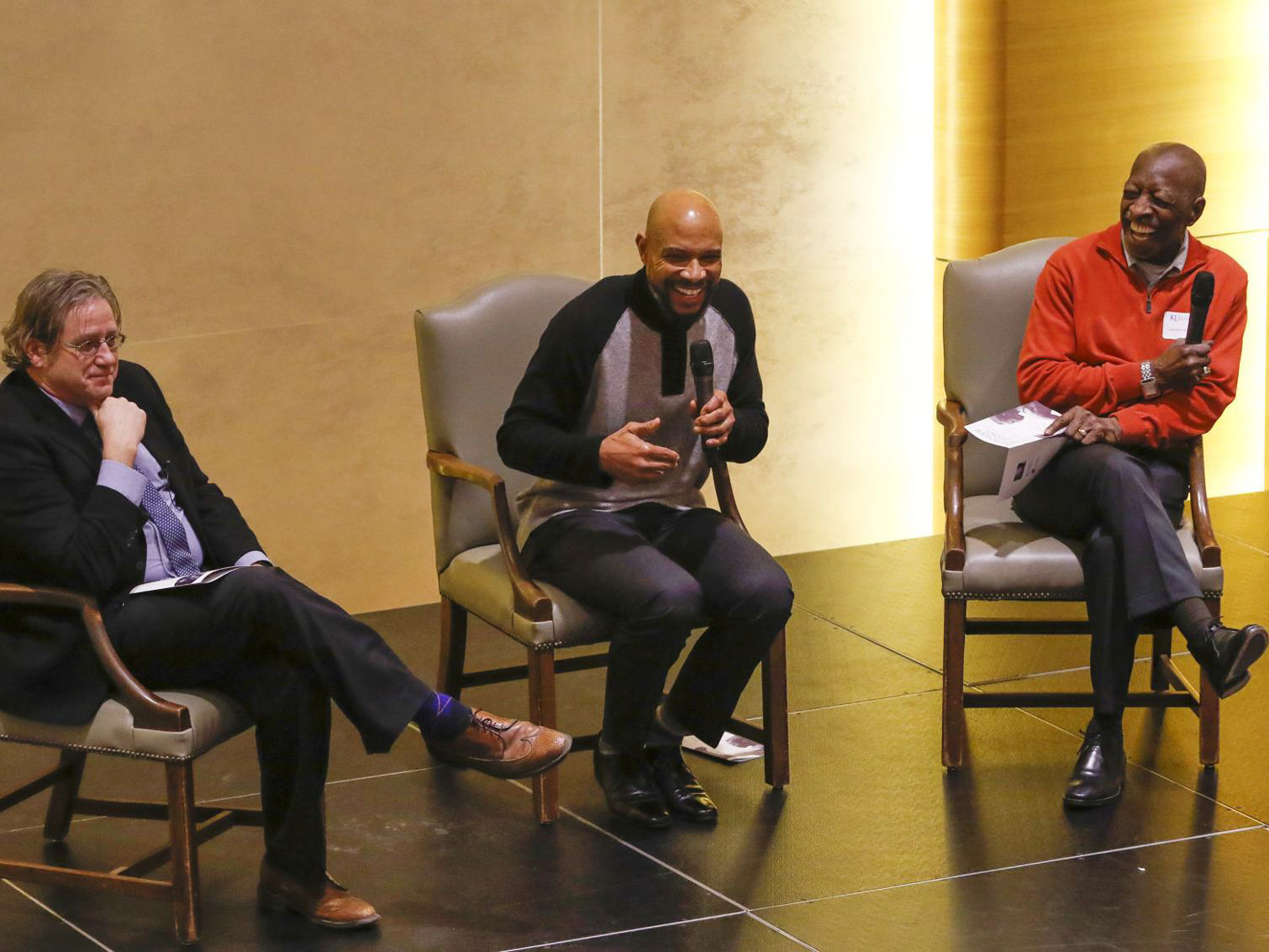An Army of Lions: The Civil Rights Struggle Before the NAACP
(University of Pennsylvania Press, 2012)
(University of Pennsylvania Press, 2012)
In January 1890, journalist T. Thomas Fortune stood before a delegation of African American activists in Chicago and declared, "We know our rights and have the courage to defend them," as together they formed the Afro-American League, the nation's first national civil rights organization. Over the next two decades, Fortune and his fellow activists organized, agitated, and, in the process, created the foundation for the modern civil rights movement.
An Army of Lions: The Civil Rights Struggle Before the NAACP traces the history of this first generation of activists and the organizations they formed to give the most comprehensive account of black America's struggle for civil rights from the end of Reconstruction to the formation of the National Association for the Advancement of Colored People in 1909. Here a host of leaders neglected by posterity—Bishop Alexander Walters, Mary Church Terrell, Jesse Lawson, Lewis G. Jordan, Kelly Miller, George H. White, Frederick McGhee, Archibald Grimké—worked alongside the more familiar figures of Ida B. Wells-Barnett, W. E. B. Du Bois, and Booker T. Washington, who are viewed through a fresh lens.
As Jim Crow curtailed modes of political protest and legal redress, members of the Afro-American League and the organizations that formed in its wake—including the Afro-American Council, the Niagara Movement, the Constitution League, and the Committee of Twelve—used propaganda, moral suasion, boycotts, lobbying, electoral office, and the courts, as well as the call for self-defense, to end disfranchisement, segregation, and racial violence. In the process, the League and the organizations it spawned provided the ideological and strategic blueprint of the NAACP and the struggle for civil rights in the twentieth century, demonstrating that there was significant and effective agitation during "the age of accommodation."
An Army of Lions: The Civil Rights Struggle Before the NAACP traces the history of this first generation of activists and the organizations they formed to give the most comprehensive account of black America's struggle for civil rights from the end of Reconstruction to the formation of the National Association for the Advancement of Colored People in 1909. Here a host of leaders neglected by posterity—Bishop Alexander Walters, Mary Church Terrell, Jesse Lawson, Lewis G. Jordan, Kelly Miller, George H. White, Frederick McGhee, Archibald Grimké—worked alongside the more familiar figures of Ida B. Wells-Barnett, W. E. B. Du Bois, and Booker T. Washington, who are viewed through a fresh lens.
As Jim Crow curtailed modes of political protest and legal redress, members of the Afro-American League and the organizations that formed in its wake—including the Afro-American Council, the Niagara Movement, the Constitution League, and the Committee of Twelve—used propaganda, moral suasion, boycotts, lobbying, electoral office, and the courts, as well as the call for self-defense, to end disfranchisement, segregation, and racial violence. In the process, the League and the organizations it spawned provided the ideological and strategic blueprint of the NAACP and the struggle for civil rights in the twentieth century, demonstrating that there was significant and effective agitation during "the age of accommodation."
W. E. B. Du Bois: An American Intellectual and Activist
(Roman & Littlefield, 2015)
(Roman & Littlefield, 2015)
W. E. B. Du Bois was one of the most prolific African American authors, scholars, and leaders of the twentieth century, but none of his previous biographies have so practically and comprehensively introduced the man and his impact on American history as noted historian Shawn Alexander's W. E. B. Du Bois: An American Intellectual and Activist. Alexander tells Du Bois’ story in a clear and concise manner, exploring his racial strategy, civil rights activity, journalistic career, and his role as an international spokesman. The book also captures Du Bois’s life as a historian, sociologist, artist, propagandist, and peace activist, while providing space for the voices of his chief critics: Booker T. Washington, Marcus Garvey, Walter White, the Young Turks of the NAACP—not to mention the federal government’s characterization of his ever-radicalizing beliefs, particularly after World War II. Alexander’s analysis traces the development of Du Bois' thought over time, beginning with his formative years in New England and ending with his death in Ghana. Paying significantly more attention to the many pivotal and previously unexamined intellectual moments in his life, this biography illustrates the experiences that helped bend and mold the indispensable thinker that W.E.B. Du Bois became: the kind whose crowning achievement is his continued relevance in contemporary culture, from classrooms to curbsides.
The Souls of Black Folk
(University of Massachusetts Press, 2018)
(University of Massachusetts Press, 2018)
In honor of the 150th anniversary of W. E. B. Du Bois’s birth in Great Barrington, Massachusetts, the University of Massachusetts Library has prepared a new edition of Du Bois’s classic, The Souls of Black Folk. Originally published in 1903, Souls introduced a number of now-canonical terms into the American conversation about race, among them double-consciousness, and it sounded the ominous warning that “the problem of the Twentieth Century is the problem of the color-line.” In a new introduction, Shawn Leigh Alexander outlines the historical context of this critical work and provides rare documents from the special collections archive at the Du Bois Library at the University of Massachusetts Amherst.
Unlike Du Bois’s more scholarly work, Souls blends narrative and autobiographical essays, and it continues to reach a wide domestic and international readership. This moving homage to black life and culture and its sharp economic and historical critique are more important than ever, resonating with today’s unequivocal demand that Black Lives Matter in the twenty-first century.
Unlike Du Bois’s more scholarly work, Souls blends narrative and autobiographical essays, and it continues to reach a wide domestic and international readership. This moving homage to black life and culture and its sharp economic and historical critique are more important than ever, resonating with today’s unequivocal demand that Black Lives Matter in the twenty-first century.
T. Thomas Fortune, the Afro-American Agitator:
A Collection of Writings, 1880-1928
(University Press of Florida, 2008)
A Collection of Writings, 1880-1928
(University Press of Florida, 2008)
Born into slavery, T. Thomas Fortune was known as the dean of African American journalism by the time of his death in the early twentieth century. The editorship of three prominent black newspapers--the New York Globe, New York Freeman, and New York Age--provided Fortune with a platform to speak against racism and injustice.
For nearly five decades his was one of the most powerful voices in the press. Contemporaries such as Ida B. Wells, W.E.B. Du Bois, and Booker T. Washington considered him an equal, if not a superior, in social and political thought. Today's histories often pass over his writings, in part because they are so voluminous and have rarely been reprinted. Shawn Leigh Alexander's anthology will go a long way toward rectifying that situation, demonstrating the breadth of Fortune's contribution to black political thought at a key period in American history.
For nearly five decades his was one of the most powerful voices in the press. Contemporaries such as Ida B. Wells, W.E.B. Du Bois, and Booker T. Washington considered him an equal, if not a superior, in social and political thought. Today's histories often pass over his writings, in part because they are so voluminous and have rarely been reprinted. Shawn Leigh Alexander's anthology will go a long way toward rectifying that situation, demonstrating the breadth of Fortune's contribution to black political thought at a key period in American history.
Reconstruction Violence and the Ku Klux Klan Hearings:
A Brief History with Documents
(Bedford/St. Martins, 2015)
A Brief History with Documents
(Bedford/St. Martins, 2015)
This carefully edited selection of testimony from the Ku Klux Klan hearings reveals what is often left out of the discussion of Reconstruction—the central role of violence in shaping its course. The Introduction places the hearings in historical context and draws connections between slavery and post-Emancipation violence. The documents evidence the varieties of violence leveled at freedmen and Republicans, from attacks hinging on land and the franchise to sexual violence and the targeting of black institutions. Document headnotes, a chronology, questions to consider, and a bibliography enrich students’ understanding of the role of violence in the history of Reconstruction.
The Aftermath of Slavery:
A Study of the Condition and Environment of the American Negro
(University of South Carolina Press, 2012)
A Study of the Condition and Environment of the American Negro
(University of South Carolina Press, 2012)
William Albert Sinclair, born a slave in 1858, grew up in South Carolina during the tumultuous years of the Civil War and Reconstruction. Influenced by his childhood experiences, Sinclair spent his life fighting for the rights of African Americans and was an active member of the Afro-American Council, the Constitution League, and their successor, the National Association for the Advancement of Colored People. He spent many years speaking out against the rise of white supremacy and the developing Jim Crow system. Inspired by the scholarship and activism of T. Thomas Fortune and W. E. B. Du Bois, Sinclair published The Aftermath of Slavery: A Study of the Condition and Environment of the American Negro, one of the most complete analyses of slavery and the years immediately following emancipation.
First published in 1905, The Aftermath of Slavery provided a historical analysis of the late nineteenth century that underscored the existence of black resistance to white domination during slavery and Reconstruction and created a public discourse to counter then-dominant views of slavery as a civilizing institution and Reconstruction as a period of misrule. This Southern Classics edition includes a new introduction by Shawn Leigh Alexander, which emphasizes the importance of this book as a tool to understanding the meanings of peace and citizenship, as well as violence and terror, in the years directly following emancipation.
First published in 1905, The Aftermath of Slavery provided a historical analysis of the late nineteenth century that underscored the existence of black resistance to white domination during slavery and Reconstruction and created a public discourse to counter then-dominant views of slavery as a civilizing institution and Reconstruction as a period of misrule. This Southern Classics edition includes a new introduction by Shawn Leigh Alexander, which emphasizes the importance of this book as a tool to understanding the meanings of peace and citizenship, as well as violence and terror, in the years directly following emancipation.




